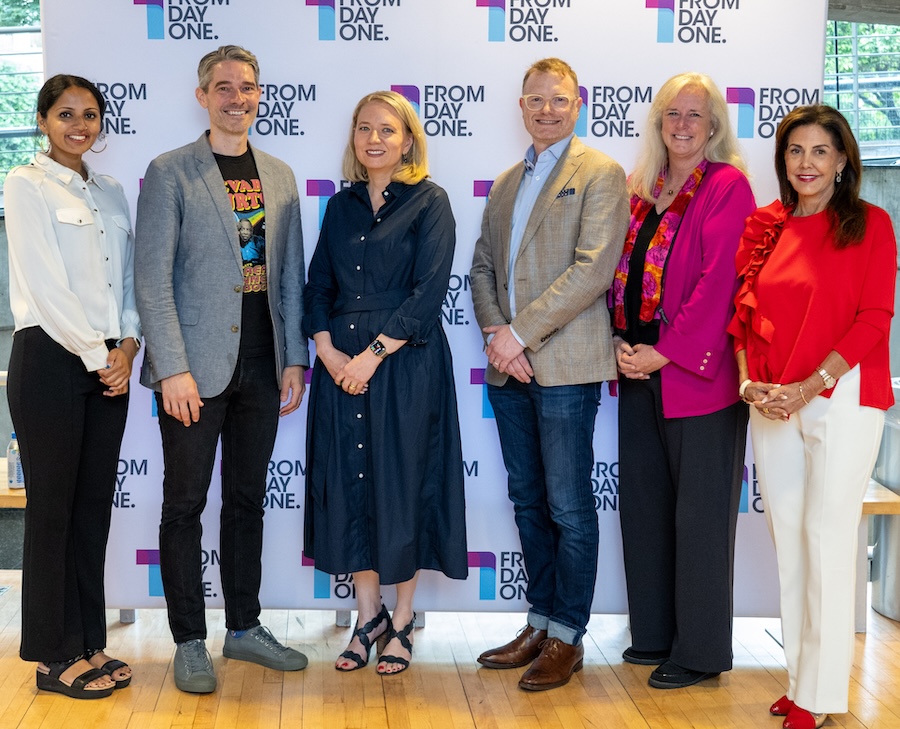Building Resilience by Leveraging Leadership Development


With resources shrinking, managers face relentless pressure to do more with less. Beth Perrone, SVP of HR at pharmaceutical leader Merck, identified “ruthless prioritization” as a critical skill needed to thrive in management today.
“Managers and employees are being forced to make tougher decisions and prioritize the work that they’re doing. And quite frankly, it’s not a skill that we had historically invested in,” she said during an executive panel discussion about leadership development at From Day One’s Manhattan conference. Merck now embeds prioritization training into development programs, she says.
Rose Fass, founder and chair of fassforward, challenged the “do more” mindset entirely. “Do less because it’s more. A few well-focused actions can yield significant results,” she said. Fass encourages managers to distinguish between work that “moves the needle” and tasks that merely “move the mashed potatoes and peas around the plate.” It’s essential to prioritize tasks that drive significant results instead of trying to do everything, she says.
Conversational Agility as a Core Competency
Hybrid work and multigenerational teams have eroded casual communication in workplaces. “Years ago, you didn’t have to make an appointment to see your boss. Today, you have to get on a calendar,” Fass said. This makes intentional, skilled conversation a non-negotiable.

Kelly Stuart-Johnson, global head of learning at creative agency VML, emphasized the importance of “conversational agility,” creating a psychological safety that enables diverse teams to connect authentically. “It’s really not necessarily about [being] multigenerational. It’s about how we instill a sense and teach the importance of psychological safety,” she said. VML uses AI simulations to enable managers to safely practice difficult conversations, focusing on “the conversations they want to have rather than providing them with a script.”
Empathy: The Bedrock of Performance
Jason Ashlock, the global head of organizational development at Kuehne+Nagel, urged managers to understand not just their teams, but the world their employees are navigating. “Capitalism is traumatic. It’s traumatic at scale,” he said. Managers must learn to handle “the flood of cortisol” caused by this trauma and diffuse tension, he says.
While Ashlock focused on the broader forces shaping employee experience, Perrone turned to how leaders respond to that reality. She challenged the notion that leaders must choose between empathy and accountability. “Everyone wants to talk about empathy, and what a lot of leaders naturally jump to is: ‘If I’m empathetic, I then can’t hold teams accountable.’ And I think that’s wrong,” she said.
Leaders at Merck revamped leadership programs to focus on building connections. “How I speak to you, Jason, and connect with you is different from how I connect with Kelly. That is at the crux of leadership,” Perrone said.
Philipp Muelbert, the Group SVP of strategy, performance, and innovation at talent solutions firm LHH, agreed. “Empathy and performance aren’t mutually exclusive, but you can’t have an effective conversation with somebody about performance issues if they’re not in the right state of mind, and if they’re not willing to listen,” he said.
Driving Innovation in Technology and Development
The panelists all see AI as a tool to reclaim human connection. Stuart-Johnson uses AI coaching “for the moments when someone needs it, when we’re not present,” while freeing managers for higher-touch interactions. “We’re using AI to get us back to humanity,” she said.
Perrone shared how Merck experiments with AI to analyze employee surveys so managers “don't need to spend an hour reading through literally 120,000 comments. Here are the themes, now go engage.” Ashlock envisions AI helping managers tailor messages to team members.
In terms of advancements in development, the most exciting innovations are those that break away from traditional corporate training. Perrone launched “Leadership Readiness Labs,” featuring unconventional experts. “We’ve had an astronaut, we’ve had a conductor, we had Andy Murray’s mom talk about how she coached,” she said.
Ashlock takes leaders literally into the wild through his new venture, bringing executives to “shovel manure with Mustangs for a day” because “ecosystems teach us about sustainable, adaptable, resilient dynamics,” he said.
Growth also matters from within, says Muelbert. “Figuring out what my journey looks like for me, first and foremost,” he said, emphasizing that personal clarity is the foundation for meaningful growth and leadership.
And sometimes, we need to look outside the box. Fass encourages leaders to question their assumptions and be open to ideas that might initially feel uncomfortable or unfamiliar. “Disrupt your thinking. Don’t like it? Just consider it,” she said.
Ade Akin covers workplace wellness, HR trends, and digital health solutions.
(Photos by Hason Castell for From Day One)
The From Day One Newsletter is a monthly roundup of articles, features, and editorials on innovative ways for companies to forge stronger relationships with their employees, customers, and communities.